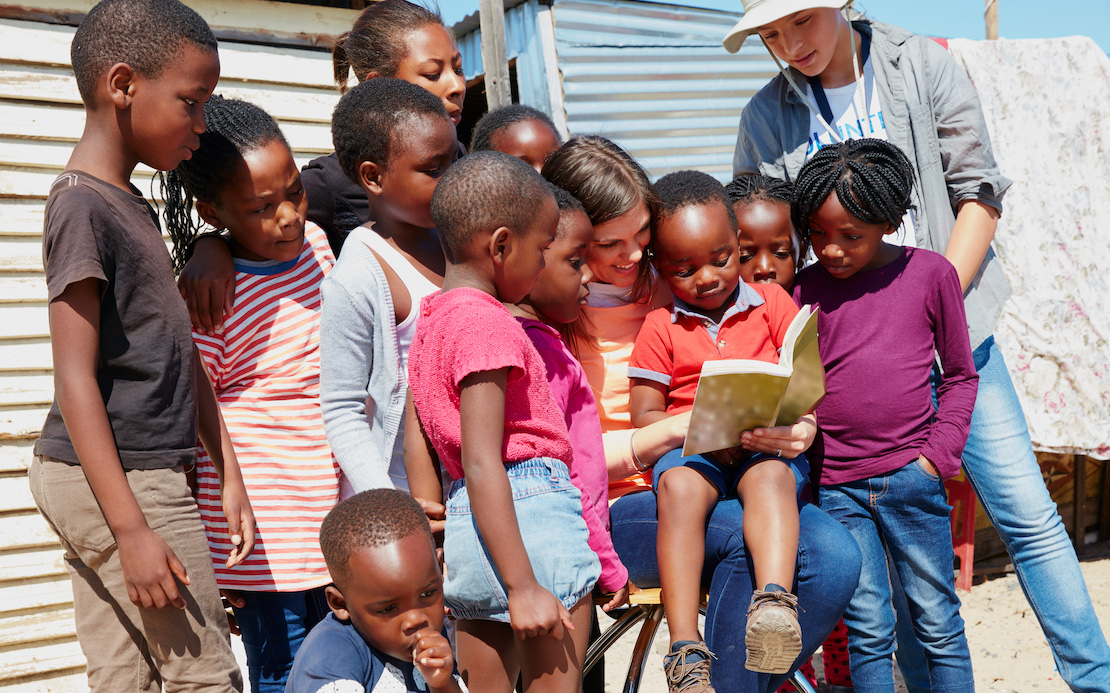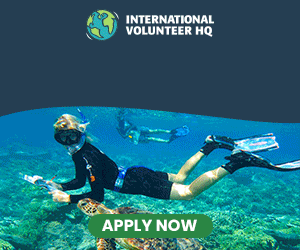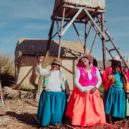Updated for 2024
“The problem with little white girls, boys and voluntourism”
In 2014, an article by Pippa Biddle took the Internet by storm, highlighting common yet largely ignored issues in volunteer travel. In The Problem With Little White Girls, Boys and Voluntourism, Pippa discusses two volunteer trips she took in high school, and how at best, her efforts made no impact on the host communities in the Dominican Republic and Tanzania.
“It turns out that I, a little white girl, am good at a lot of things. I am good at raising money, training volunteers, collecting items, coordinating programs, and telling stories. I am flexible, creative, and able to think on my feet. On paper I am, by most people’s standards, highly qualified to do international aid. But I shouldn’t be.
I am not a teacher, a doctor, a carpenter, a scientist, an engineer, or any other professional that could provide concrete support and long-term solutions to communities in developing countries. I am a white girl who can carry bags of moderately heavy stuff, horse around with kids, attempt to teach a class, tell the story of how I found myself (with accompanying powerpoint) to a few thousand people and not much else.”
She doesn’t argue that the very concept of volunteering abroad is a negative one. She still works with underserved communities in the Dominican Republic through Camp Hope and Joy, but with a completely different approach: rather than inviting unskilled voluntourists on short-term assignments, her Dominican-led team engages Peace Corps Volunteers and other highly-skilled volunteers from the United States to accomplish projects set out by and for the community.
Comments on Pippa’s article are overwhelmingly supportive from volunteers, to community members who’ve welcomed volunteers, to volunteer organizations working on the ground. The few negative comments take issue with her bringing race into the discussion–it’s not just white people who take on unsustainable volunteer projects. A few of the constructive points of feedback:
Helping Others Help Themselves:
“Helping people is [commendable] but where possible, it’s better to help others help themselves.”
A Learning Experience:
“Nicely worded. Even if a volunteer’s first trip is just a learning experience, it still can change that volunteer’s life and goals for the better. Maybe that volunteer originally just wanted to take a fun trip with their friends and brag about it…but maybe what they got instead was a real look into another culture and the true meaning of life and love. Maybe it changed the way they do things forever. Maybe others will see their change, and want the same. Little by little, others will realize how important it is to not just volunteer, but donate or support in other ways. If no one volunteers anymore, (or if only the highly skilled volunteer), less will have a chance at a true change of heart.”
The Importance of Perspective:
“100% agree with what you’re saying here Pippa…I’m a returned Peace Corps Volunteer, West Africa ’02-’03… Those who [don’t] understand haven’t been there…”
There are lots of ways to be a great help abroad, but you must be smart about selecting the right opportunity. Granted, this has become a lot easier recently as large international volunteer organizations have made progress in making their programs more sustainable. Two big examples of this is the decision by Projects Abroad and International Volunteer HQ to phase out their orphanage volunteer programs.
Select the right volunteer abroad program
Just over a decade ago, volunteer travel as we know it today with organizations such as International Volunteer HQ (IVHQ) or GoEco was still a niche option available mostly to backpackers exchanging work for lodging, Peace Corps (or similar initiatives such as First Things Foundations) volunteers living abroad for years at a time, or mission travelers. The few volunteer trip organizers that existed, such as Global Volunteers, boasted gold-standard relationships with esteemed entities such as the United Nations. Since then, volunteering abroad has evolved into a booming travel sector–one that’s much more accessible for solo travelers, couples, families, seniors/retirees, and groups. But along with such fast growth, there’s an increasing need to delineate which programs are doing more harm than good and which are the most sustainable, and to educate would-be volunteers about how to tell the difference.
Narrow Your Options
If you’re new to volunteering abroad, you might be overwhelmed at the huge number of projects available worldwide. Why do some organizations such as International Volunteer HQ (IVHQ) charge you $20 per day while others charge $3,000 per week? Why are some projects one week long while others last six months minimum? How does this rhino orphan sanctuary program from GoEco differ from the other one a mile away?
Knowing what to look for in the first place will help you narrow down the groups doing the best work in their communities–the ones whose volunteers add the greatest value to their projects. And one of the best ways to find this out is by starting with organizations that have won awards for their work, have otherwise have been publicly recognized, or have successfully hosted thousands of volunteers:
- GoEco is a perfect example of this as a trusted leading ecotourism organization with a dedicated page for volunteers to check out their many great reviews, honourable mentions from newsletters and colleges, as well as numerous awards.
- Another great program to look at is Maximo Nivel which has hosted over 25,000 program participants and operates its own projects. Read on to learn about some of the impressive accolades this organization has won in its quest operate responsible volunteer programs.
- And finally, check out organizations that have won travel industry accolades. Two great examples are African Impact, which was voted the world’s Top Volunteer Abroad Organization by volunteers on GoAbroad four years in a row and Global Vision International, which was won Responsible Travel’s World Responsible Tourism Award.
Of course, an outright way to avoid scams (where you risk sending your money to a volunteer organization that doesn’t actually exist) is to participate in a fully-funded program where your flights, accommodations, and meals are fully covered – First Things Foundation is a great non-profit organization to consider if you are willing to invest two years of your life serving overseas.
Here are some highlighted projects from these trusted organizations to consider.
Featured Program: International Volunteer HQ (IVHQ)
Founded in 2007 by Dan Radcliffe, International Volunteer HQ offers over 330 affordable volunteer trips. IVHQ is a certified B-Corp and has placed more than 130,000 volunteers around the world on projects ranging from teaching and healthcare, to wildlife conservation and construction, and more. Programs last one week to 24 weeks and start at $20USD a day.
IVHQ is committed to ethical and responsible volunteering and in doing so carries out the following best practices:
- Partners with local organizations
- Regularly audits programs to ensure they meet goals
- Implements a child protection policy across all programs
- Offers pre-departure training to volunteers to maximize their impact
International Volunteer HQ (IVHQ)’s programs are available in over 40 different destinations, including in Bali, South Africa, Costa Rica, Peru, Fiji, Nepal, and Spain.
Featured Program: GoEco
GoEco has more than 150 reputable and affordable projects throughout the world, from medical internships in Costa Rica to wildlife rehabilitation in Zimbabwe. GoEco is run by experienced volunteers who’ve taken the time to ensure each program adheres to high standards for quality, safety, and ethics. Founded in 2006, GoEco was recognized as the Top Volunteer Abroad Organization by GoAbroad in 2015 and has been recommended by the Today Show, Boston Globe, and USA Today. So, you can rest assured you’ll be making a positive impact wherever you go. Currently, GoEco is offering a special travel grant where you can stay for the 3rd week free! Check out the qualifying programs here!
For example, you could join the Private Island Marine Experience program in Belize, which is the leader in the removal of invasive species in all of Belize. Volunteers on this program have dissected nearly 2,000 lionfish for research purposes, identified and added whale sharks to a global database, located new breeding grounds for conches and so much more! Besides, Belize, GoEco has many more marine conservation projects to check out here.
Or, make your way to Cape Town to work with children from the low-income settlements. The Teach, Surf and Skate program in particular has been extremely successful, with over 300 children learning to swim and almost 100 learning to surf or skate! Some of these children are now sponsored by major surf brands, and all of the children who have learned to swim now have a new life skill and after school hobby.
You can also search different programs based on locations (such as Asia, Africa, Central America), or interests (wildlife and animal conservation, health and medical care) where you would like to volunteer.
Featured Program: Maximo Nivel
Maximo Nivel is Volunteer Forever’s top-ranked volunteer abroad program with over 250 reviews and a perfect 5-star rating. Their projects are very affordably priced, starting at just $595 (for one week) and appeal to a broad base of participants from high school students to graduate students and working professionals.
Maximo Nivel is a locally-based organization in Latin America that was founded in 2003 and has hosted over 25,000 participants for its volunteer abroad, internship abroad, study abroad, Spanish Immersion, Teach English as a Foreign Language (TEFL), Semester Abroad, and High School Abroad programs. Maximo Nivel offers its projects in three countries in Latin America: Costa Rica, Guatemala, and Peru.
Maximo Nivel follow the Standards of Good Practice from the Forum on Education Abroad and the Forum’s Code of Ethics for Education Abroad.
Featured Program: Projects Abroad
Established in 1992, Projects Abroad is one of the world’s preeminent international volunteer organization. To date, it has hosted over 132,000 participants across 209 projects in 20 destinations around the world. The organization’s mission is to make a real impact in the communities it serves by carefully planning and monitoring its projects. Each year, it supports the education of more than 14,000 children, removes nearly 30 tonnes of litter from the environment, and plants over 18,000 trees. It also offers a Gold Standard of Support, with over 30 years of experience and thorough risk assessments for every project. The organization’s hassle-free approach includes airport pickups, local transportation, and safe, clean accommodation, all included in the price. In addition to volunteering, it offers a variety of internships and teaching abroad opportunities, as well as programs for families, groups, and high school students. Its minimum age requirements are 16 for Flexi trips and 15 for High School Specials. It also offers a lot of flexibility for volunteers, including accommodating dietary requirements, accommodation preferences, accessibility needs, and interpreter services at no additional cost wherever possible. Its most popular programs include Volunteer in Nepal, Volunteer in Cambodia, Volunteer in Tanzania, Volunteer in Ghana, Volunteer in Peru, and Volunteer in Fiji. Its programs start at $1,295 for 1 week.
Featured Program: Volunteering Solutions
Volunteering Solutions, or VolSol, as it has been nicknamed by its 17,000 volunteers and volunteer alums, has a long history of connecting passionate volunteers with great international projects since 2006. VolSol was founded by volunteers who wanted to help international volunteers connect to highly specialized, community-based local projects.
VolSol has a full staff of experienced coordinators who assist volunteers before, during, and after placement, providing resources such as international insurance, a connection to a network of passionate global citizens over 17,000 strong and resources on how to volunteer ethically and mindfully. As a testament to their commitment to international volunteer best practices, VolSol is a member of the WYSE Travel Confederation and Year Out Group in the UK. VolSol is one of the most affordable programs in the world with one week projects starting at just $200 USD.
Featured Program: African Impact
African Impact is an award-winning, responsible travel organization that offers volunteer and internship opportunities in 7 countries across Africa. It was founded in 2004 and has since hosted over 35,000 volunteers. African Impact has over 20 different projects, ranging from teaching in Zambia to marine conservation in Zanzibar. The organization is known for its long-term objectives and measurable change. It is also recognized as a trusted specialist on volunteering and interning in Southern Africa. African Impact offers internships, as well as group, family, and high school projects. In-country support is available 24/7.
African Impact’s non-profit and charity volunteer projects and internships offer individuals the opportunity to gain valuable work experience in the non-profit sector while making a positive impact on sustainable development in Sub-Saharan Africa. These internships are customizable, allowing individuals to explore a specialty within the framework of international development. As an intern, individuals will support the daily operations of a non-governmental organization (NGO) and become an integral part of the team, supporting the organization’s goals, initiatives, and impacts.
If you enjoy spending your time outdoors or are passionate about saving endangered wildlife, Africa Impact offers sustainable programs such as the African Big 5 Wildlife Conservation project. It is a volunteer program in South Africa that offers participants the opportunity to work with expert field guides and research teams in the Greater Kruger Area, one of the world’s last remaining wildlife strongholds. The Greater Kruger Area encompasses over 20 private wildlife reserves on the west side of the Kruger National Park, and it is home to many of Africa’s iconic “Big 5” animals, including lions, elephants, rhinos, leopards, and buffalo.
Interested in social issues? Consider an African Impact volunteer program that takes you to Cape Town, South Africa. The Early Childhood Development Project in Cape Town offers volunteers the chance to work with vulnerable children in underprivileged townships. Volunteers will support children in foster care homes and pre-schools, providing them with access to education and care that they may not otherwise have access to. The project aims to make a positive, long-term impact on the lives of disadvantaged children by providing them with the support and education they need to succeed.
Featured Program: First Things Foundation
First Things Foundation (FTF) is a 501(c)(3) non-profit organization that partners with local leaders to build sustainable businesses and communities in developing countries. FTF is definitely a long-term volunteer opportunity: its field workers (international volunteers) commit two years of their lives to living in the communities they are serving. This allows field workers to develop deep relationships with the people they are working with and to better understand the needs of the community. Furthermore, First Things Foundations covers all travel costs and living expenses (food, local transport, accommodation, etc.) for its field workers. In addition, field workers receive a monthly stipend of $375. FTF also provides international medical and evacuation insurance for all of its field workers.
The organization has 15 projects in 4 countries (Guatemala, Sierra Leone, the Republic of Georgia, and Mozambique), which are all led by locals in the communities. Having the local community lead international volunteer projects is important because ultimately, they understand the their own needs best. FTF’s field workers have worked on a variety of projects, including starting businesses, building schools, and providing healthcare. FTF field workers are not afraid to get their hands dirty: working on farms, sanding wood, and kneading dough are some of the ways that they integrate into the local community.
FTF is looking for participants with a desire to better their souls by undertaking a serious challenge, an adventurous attitude, a willingness to learn new languages, make fun of themselves, and be made fun of. Field workers typically have completed 4 years of college or have an equivalent amount of experience. If you are looking for a challenging and rewarding volunteer experience, the First Things Foundation volunteer program is a great option.
Featured Program: Global Vision International
Since 1997, Global Vision International has been committed to providing high-quality conservation and community development initiatives worldwide for travelers who’d like to make a difference. Every year, more than 2,000 volunteers participate in GVI’s award-winning projects in Asia, Latin America, Africa, and beyond. A few of GVI’s accolades include Responsible Travel’s World Responsible Tourism Award, a spot on National Geographic’s 50 Tours of a Lifetime, and WYSE Travel Confederation’s Outstanding Volunteer Project Award.
One of the many impactful projects you can sign up for with GVI invites you to Cambodia, where you can volunteer to teach English to Buddhist novice monks. Your volunteer work is incredibly important to these students, who will be able to pursue more employment opportunities and better their economic situation over the long-term by learning English. Through this placement, you’ll work alongside local teachers in various classroom settings – and as a native speaker, you’ll be able to help your students improve their conversational and listening skills. This program starts from two weeks, but you’re invited to stay up to six months to make the greatest impact and gain the most from your experience in Cambodia. Learn more and apply here.
Another of GVI’s volunteer programs brings you to Fiji, where you will be able to work in sustainable community development initiatives. The five core focuses of this expedition include WASH (water, sanitation, and hygiene), health and nutrition, income generation, education enrichment and empowerment, and environmental management and protection. This is a wonderful way to get a brief glimpse of how sustainable community programs operate.
If you’d like to travel to South Africa, GVI offers an excellent opportunity to work with a local wildlife research team to track animals, study their behavior, and learn more about South African wildlife. You’ll start with a training session to learn about the program and the types of animals you’ll study, and from there you will volunteer each day tracking wildlife, conducting research, assisting with data entry, and even participating in community education about conservation.
And finally, through GVI’s marine conservation initiative in the Seychelles, you can earn your PADI Advanced and PADI Coral Reef Research Diver qualification while volunteering with marine researchers to conduct underwater surveys. You can also expect to participate in training sessions, marine debris surveys, environmental education sessions, and more.
Ask Questions Before Volunteering Abroad
As you narrow down potential volunteer projects, start thinking through questions you want to ask before signing up. We outlined 10 basic questions you should ask any volunteer organization you’re seriously considering–you can view the whole post here, but as a quick rundown:
- What is a typical day like for your volunteers?
- Are there past or current volunteers that I can talk to about the project?
- What are the biggest frustrations for volunteers on your project?
- Will I work in a team or alone, and will I be supervised?
- What does my placement or program fee go towards?
- What aspects of my volunteer experience will I need to organize myself?
- What language skills do I need to volunteer with the project?
- What should I wear during work? During leisure hours?
- What are the safety concerns of living and working in the area?
- What do you, the organization, expect from a great volunteer?
These questions will help you learn more about the organization and your responsibilities–the next step will be to actively manage your own expectations.
Manage Expectations and Avoid Common Pitfalls in Volunteering Abroad
While choosing my first volunteer trip in college, I had no idea how to compare potential projects–after Googling “Volunteer Vacation,” thousands of opportunities popped up, all of which seemed alright to someone new to the topic.
I picked the least expensive option: an $8 per day sea turtle conservation project in Costa Rica. I ran into trouble the very first week–who knew you have to wear all black while looking for nesting turtles? The packing list didn’t mention it, and as a result all I brought were bright t-shirts and khaki shorts. And why did none of the project staff seem to know about my arrival, or that of another volunteer who started the same day? Had I known what to ask and what to look for in a good project, I probably would have chosen a different one–or at least would have been better prepared. This example highlights why you shouldn’t necessarily pick the cheapest volunteer program that you come across. For example, Global Vision International, which we mentioned earlier, tends to be a bit more expensive than other volunteer programs, but this is because they are on-the-ground operators who use well-trained staff to source and manage projects with respected local organizations.
Sallie Grayson highlights mistakes like these in her article on common pitfalls volunteers experience before, during, and after service. While volunteer organizations usually outline questions you should ask, and often provide handbooks and pre-departure checklists, you can’t assume that’s the beginning and end of what you need to know before embarking on your trip.
When I went on to create a volunteer placement agency years later, I ran into this issue firsthand: there was too much information to include on our website and in our handbooks, and it was constantly changing depending on what our partners needed. While we didn’t whitewash anything and were transparent about funding and other common questions, we found that we had to prioritize what would be posted online and what we had to discuss directly with potential volunteers. Speaking with our volunteers, learning more about what they wanted from their experience, and managing our respective expectations made all the difference between a so-so trip and a really great one.
Here’s a quick overview of Sallie’s recommendations, but be sure to read the full article to get further explanation on each point:
- Remember to ask questions
- Don’t assume the volunteer organization is being totally transparent, even if they provide FAQs and budget overviews
- Don’t pack more than you really need
- Be realistic about what you can contribute to the project based on your skillset and the time allotted to your work
- Don’t try to do too much too soon
- Don’t try to take on too much work or responsibility overall
- Only make promises that you know you can keep
- Alert the project staff as soon as a problem arises
- Elevate your support system after the project is complete
- If you want to continue giving after you’ve returned home, work with your host organization to find the best way to do it
- Report negative experiences so potential volunteers know what to look out for
Sallie’s point on being realistic about your contribution brings us back to Pippa Biddle’s article: many of us think we’ll have a much greater impact on our host community than we actually will.
We enter these programs with good intentions, but most volunteer travelers aren’t well-versed in the nuances of international development and aid, and unfortunately, neither are many volunteer travel organizations. Daniela Papi highlights this disconnect in her 2012 TEDxOxbridge talk:
“I think that a lot of volunteer travel right now is offering really short-term solutions for complex problems. And yet we’re really disappointed when we’re not getting long-term development results…We’re not only failing the youth that we’re sending abroad and the communities they aim to be serving, but we’re also harming our collective futures. Because if the next generation doesn’t have the tools that we need for sustainable development in the future, we’re in trouble.”
If you only have time for a short-term volunteer trip, that’s all right! But make sure you know what you’re getting into before signing up: don’t assume you’ll make much impact on your host community. Chances are they won’t remember you long after you’ve gone. If being recognized and remembered is something you value in a volunteer program, you’ll have to reevaluate your reasons for signing up, and your expectations as a short-term volunteer trying to meet long-term development goals.
Read Reviews
With the incredible popularity and growth of volunteer travel in the past decade, it seems that for every sustainable program that’s set up, so many others that do more harm than good seem to come out of the woodwork. The volunteer abroad segment is increasingly fragmented–there are thousands of international volunteer organizations and thousands more projects to choose from within them. It’s difficult, and seemingly impossible, to differentiate between the good actors and the bad.
I visited a volunteer organization in the Caribbean where participants were housed in a gorgeous villa, given cooking lessons, and taken to a beautiful white sand beach. It was an amazing tour package, but the volunteer program was terrible. Untrained volunteers were placed for one week in classrooms that didn’t expect or know what to do with them, or taken to an orphanage to babysit for a few hours. They received no training beforehand, and between hidden fees, conflicting information, and general disorganization, volunteers left the project even more confused than before they signed up.
The founder didn’t have bad intentions, but she made the same mistake too many volunteer abroad organizations make: she didn’t do adequate research and development before setting up projects and recruiting volunteers. She saw there was a market for volunteer travel, developed local partnerships, and brought on untrained, short-term volunteers to work with a vulnerable population. As a result, while she made a fair amount of money from the outset, she started to see negative reviews, volunteers abandoning their projects, and lower sign-up rates.
Reviews are vitally important to choosing a good volunteer abroad program. Lots of us rely on TripAdvisor to find the right hotel or tour package, and on a day-to-day basis, many of us rely on Yelp to find a good restaurant in our neighborhood. So it should go with volunteering abroad: see what others have to say about their own experiences and use that feedback to inform your decision.
Rachel Lewis sums up the importance of seeking out volunteer reviews in this article. She states:
“Voluntourism opportunities aren’t divided between perfect life-changing experiences and total scams. It might just be that the organization places you with a host family when you’d rather live with fellow volunteers, or that they provide your meals when you’d rather cook for yourself. But a little bit of research allows you to get the exact program you want and leaves you free to engage in the experience as much as possible.”
But what about scam reviews? Negative competitor reviews and positive self-reviews run rampant on the Internet–across all services and sectors–and unfortunately there’s no surefire way to completely control it. Knowing how to separate the real from the fake, and how to make an informed decision about what you read is an important tool in finding an excellent volunteer abroad program.
Here at Volunteer Forever, you’ll find over 2,000 reviews for hundreds of volunteer travel organizations worldwide. Many of our top programs, including Maximo Nivel (which is our top-ranked organization) features 100+ reviews that highlight the varied experiences that their volunteers have had. We’re unique in that we combine crowdfunding and reviews onto a single platform and have much more verifiable information about a reviewer to tap into.
Rather than providing a laundry list of anonymous reviews, Volunteer Forever highlights assessments from those who have completed the full usage cycle on our website by creating and completing a crowdfunding campaign, blogging about their experiences before and during service, and then leaving a review after they return home. Reviews from these volunteers are deemed more trustworthy and therefore given more weight for prospective volunteers searching for an opportunity abroad.
Skillsets needed for volunteering abroad and proper conduct overseas
As mentioned earlier, not all projects abroad require high-skilled volunteers, but you do need to be appropriately skilled. Let’s use medical volunteer travel as an example.
When planned carefully and undertaken with the right program, medical volunteering can be a great way for students and professionals to expand their skillsets and gain valuable experience in their field. But many participants–especially students–may be tempted to engage in medical procedures or practices that they’re not licensed to perform in the hopes of gaining valuable clinical experience to reference in graduate school applications. U.S. medical volunteers who serve abroad should note that the American Medical Association has published guidelines for providing patient care overseas. Some things to remember:
- The primary purpose of medical volunteering is observation, not hands-on medical care.
- Always keep the patients’ welfare in mind, not the perceived opportunity to prove yourself.
- It’s vitally important to learn about your host community and the people you’ll serve as a means to building a cultural bridge.
- Students should never engage in unsupervised medical activity, such as diagnoses, administering narcotics, performing surgical procedures or suturing, or other tasks usually reserved for medical professionals.
- There will always be disparities between what you and other students have been trained in–while someone else may have successfully been able to undertake a task, don’t assume you can as well.
- Finally, it’s not necessary to travel abroad to serve people in need.
While selecting a medical volunteer program, look at organizations such as International Service Learning and VIDA Volunteer Travel. Volunteers for both of these organizations work under the supervision of licensed healthcare practitioners, and they work within the countries’ established healthcare infrastructures to augment rather than supplant existing medical systems.
Remember, even if your country’s medical association or other professional governing body hasn’t established guidelines for conduct overseas, you should critically assess whether you have the required skills and expertise for your particular volunteer project.
These rules can apply to many other volunteer projects and skillsets as well: even if you travel abroad to teach English, work on an organic farm, or build a house, look at the guidelines above and see how well they translate to your project focus. If you’ve never taught in a classroom before, what kind of teacher training will be provided as part of your English program? How will you assess your students’ language skills and provide lessons that are structured and beneficial to their needs? Will you work as an assistant to a highly trained teacher, and what will your responsibilities be in the classroom? Regardless of the type of project you take on, make sure you can adequately answer these questions before signing up–and to help manage and inform your expectations.
A word about orphanage volunteer programs
A few years ago, I was asked to join a volunteer project at a children’s home in Honduras. Before agreeing to it, I paused: I have a strong personal and professional distaste to volunteering short-term with such a vulnerable population.
I agreed to sign up, however, because the organization didn’t place volunteers with the children. They instead supplement the smaller projects that the home’s full-time, professionally-trained staff don’t have time or funding to focus on. My volunteer group painted ceiling tiles in a boys’ dorm that was recently built but that hadn’t been occupied by the time I arrived to the project. If the tiles weren’t sealed with paint, then over time they would break down, releasing potentially harmful dust into the air. It could become dangerous quickly with a dozen children sleeping in bunk beds just feet away from the ceiling. Painting the tiles was the last step in opening the dorm for use.
The money we paid for this weeklong trip directly benefited the children’s home – it allowed Melody and Jacob, the house parents, to fix a flat tire on their home’s van, to purchase paint and supplies for the volunteers, and to feed and provide medical care for the home’s children.
Orphanage volunteering is one of the most popular sectors in volunteer travel. Every year, well-intentioned tourists sign up for projects at orphanages thinking they’ll make a positive difference in the lives of children who have no families and very little support.
Unfortunately the idea that they’re helping a community that needs them isn’t entirely true. As Al Jazeera reported from Cambodia, many children encountered through the course of these programs aren’t actually orphans. They have families, but are exploited and presented as orphans to well-meaning travelers who want to do some good on their trips abroad. With the influx of tourists with the best of intentions but little background knowledge of international development and aid, shady tour operators have responded to the market in the worst way.
Al Jazeera’s report describes “children being kept in deliberate poverty to encourage ongoing donations from volunteers who have become attached to them and organisations that repeatedly ignore volunteers’ concerns about the children’s welfare.”
This isn’t specific to Cambodia; it’s seen worldwide. And sometimes the organization isn’t inherently shady; the Caribbean organization I mentioned above didn’t deliberately keep children in poverty, but it did cater to unskilled, well-meaning volunteers rather than the children they served. The classroom volunteers distracted students and set teachers back a day in lessons for every day they were on the project, and the orphanage volunteers at best provided house mothers with a two-hour break in the afternoons.
While a volunteer might think, “I’m leaving a bright spot in this child’s otherwise miserable life,” the children in turn see a constant stream of visitors singing the ABCs, giving hugs, and leaving behind crayons and coloring books. It’s not helpful. It’s not the education they need, and by sending a revolving door of volunteer travelers to work in orphanages, these children are not receiving long-term care from qualified individuals, and they’re not being provided the resources necessary to gain self-sufficiency later.
If you really want to volunteer in an orphanage, use the steps above to find a program that’s truly beneficial to its own population. If you want to teach or care for children, find a long-term program such as VE Global (4 month commitment required) that will provide adequate training and guidance for you before and during the project. If you don’t have several months or longer to give, think about what professional services you can provide–perhaps as a doctor, dentist, engineer or other skilled professional–or take on unskilled projects such as the one I did with the boys’ dorm in Honduras.
Speak to the executive team, the staff you’ll work with, and returned volunteers. Read reviews and find people to contact directly. Ask for detailed project descriptions–“caring for children” is a broad phrase, so be sure to ask what specific activities you will engage in, and then evaluate whether you’re qualified to take it on. And find out where your money goes. The Al Jazeera report cited above highlights an issue that’s far too common in the volunteer travel world: for $3,000 volunteer fees, only $9 per volunteer per week was actually used for the project. Keep in mind that price is not necessarily associated with quality. There are several cheap and low-cost volunteer programs that will provide a high-quality volunteer abroad experience.
Summing it all up
If you decide to volunteer abroad, know that it will be an amazing opportunity – one that can change your life. But if you want to really do a great job of it, be sure to find a program that’s beneficial both to you and to your host community. Think through your reasons for volunteering, and what you will be able to realistically contribute to a community that might be very different from your own. Find reviews and testimonials from volunteers, compare the groups that interest you, and remember to ask questions. Volunteering abroad isn’t always a case where every little bit helps but when done well, your experience can make a difference.
P.S. If you’re still looking for a volunteer opportunity, check out our list of best volunteer abroad programs and recommended volunteer projects in Africa, Central America, and Thailand. You can also read about 7 Great Medical and Veterinary Volunteer Abroad Projects, 10 Dental Volunteer Abroad Program and Medical Mission Tips for Pre Dental Students, and nursing volunteer abroad projects for students and nurse professionals. Or, if medical volunteer projects aren’t for you, be sure to read about our sports and coaching volunteer abroad, wildlife conservation and veterinary abroad, teach abroad, and intern abroad programs. Lastly, if you’re under 18, you may be interested in a teen volunteer abroad program from one of our many great partners.
























Sarah Vandenberg · Director of Partnerships
Sarah has worked as a researcher and consultant in the volunteer travel world since 2004. With a BA from the George Washington University and background working with both public and private sector volunteer organizations, she enjoys exploring the world and collecting and sharing stories, trends, and advice with travelers who want to volunteer, intern, or teach abroad.